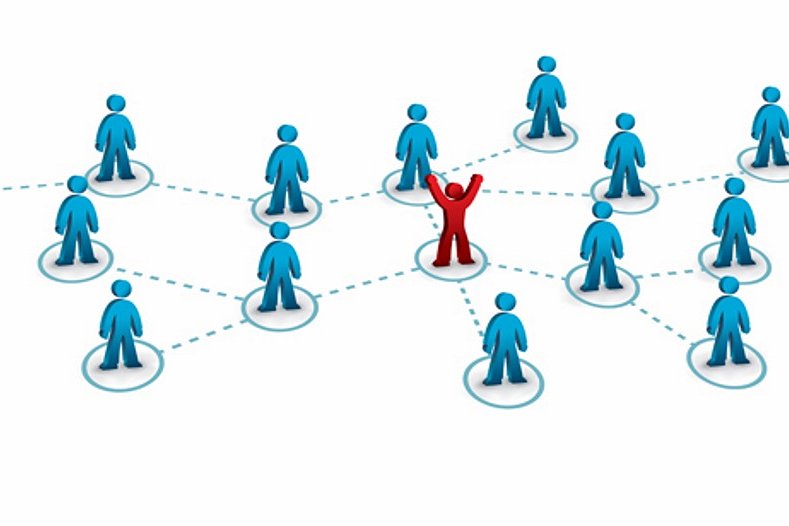
‘Grand Prize for SMEs’:Celebrating Entrepreneurial Success
The Oskar Patzelt Foundation, based in Leipzig, has been awarding the ‘Grand Prize for small and medium-sized enterprises’ regularly since 1998, supported by a now immense number of private and public institutions of all kinds. The founder and chairman of the foundation, Dr. Helfried Schmidt, had already organised the first gala event for such an award ceremony in Leipzig City Hall three years before the foundation’s establishment. The original idea of the all-round educated mathematician, who grew up in Eastern Germany, was to help the collapsed economy of his home region to get quickly back on its feet with effective network management. As a result of this initiative, linked to the reunification of Germany, he and his fellow board member Petra Tröger can already look back on an impressive 24 years of competition and prize giving.
The professionally established procedure for discovering and selecting outstanding achievements in small and medium-sized enterprises (SMEs) has now reached wider circles. Companies are honored when their overall development, employee culture, innovations, regional commitment and customer service all impress the jurors. Even local authorities receive awards in their own prize category if they excel “in the establishment and development of economic structures for SMEs” with outstanding achievements.
The festive finale of every competition is always a gala at which the honored and their work are introduced and awarded. On September 29, 2018, the 24th award ceremony was followed by a festive ball in Düsseldorf's Maritim Hotel under the motto ‘Shaping the Future.’ Eleven companies accepted the foundation's characteristic prize trophy in front of almost 500 guests, 20 company bosses were honoured as ‘finalists’ of the competition, a municipality and a savings bank received special prizes.
In an effort to greet the aspiring winners and their guests, who had traveled from all over Germany, as authentically as possible with some local color at the festival location near Düsseldorf Airport, Helfried Schmidt and Petra Tröger had decided to invite me to give the welcome address. Of course I was happy to accept the invitation, not least because Dr. Schmidt, as a member of the Hayek Society, is very familiar with the blessings that decentralized and free economic opportunities bestow on a region and its quality of life.
I expected to witness a perfectly organized, entertaining show after the opening of the evening, and of course was not disappointed. The announced program with award ceremony, buffet and ball, along with dancers, singers and artists, was in itself already enough to delight everyone. But in the midst of the jamboree, between all the visual, acoustic and culinary attractions, I found myself amazed and speechless for quite another reason.
One finalist after the other was called onto the stage, prize winner after prize winner, SME companies, bosses, managing directors, spouses, siblings, colleagues, company representatives. As they stepped via a red carpet onto the stage, pictures of their companies and their products appeared on the screen. Helfried Schmidt and Petra Tröger took turns presenting the achievements of the honored. Finally, the winners of each category stood in the limelight in a row and received their prizes. The contrast between the consistently observable lack of vanity of the participants on the one hand and the excellence of their work on the other could hardly have been greater. With shy looks, a gentle nod and sometimes a little shrug of the shoulders, these winners acknowledged the laudators’ evidence that they are world market leaders, have been innovators for decades, job guarantors, sales promoters or family entrepreneurs with centuries of tradition. The highest levels of creativity and perfection in product manufacturing, loyalty in cooperation, sensitivity in the constant search for customer requirements, reliability towards partners, seriousness and – last but not least – a total willingness to help those in need, were, in the more than two hour-long presentation, the crystallized extracts of these people’s successes.
Why, I asked myself, are entrepreneurs like these not the focus of general media interest on a daily basis? Why don't I see the faces of these real heroes of our prosperity on the front pages of our newspapers? Why don't radio and television continuously tell us the life stories of these fellow men and women who, through their commitment, their willingness to take risks, their unfaltering attitude towards defeats and setbacks, their persistent motivation to serve others, make everyone's daily lives easier and more comfortable?
If we look back over the past 100 years in Germany, we can see that political actors in 1918, 1933, 1945 and 1989 succeeded four times in making the society they ruled fail in a crash. And every failure of this kind was accompanied by devastation of varying proportions, both material and immaterial. After each of these times, it was the economic actors who removed the rubble and – despite the always hair-raising chaos – secured for us an ever better standard of living.
Why do we allow the notorious college dropouts and the jobless, who have demonstrably been unable to organise their own personal lives in a sustainable way, to dominate the public discourse and set the political tone? Is it true what a guest of the festival said to me: “Journalists prefer to write about (Social Democrat Youth leader) Kevin Kühnert, because they themselves do not understand what these entrepreneurs do”? What would Germany, Europe and the world look like in 20 or 50 years' time if this evening’s winners became visible role models for future generations? I can imagine. And I thank Helfried Schmidt and Petra Tröger for giving me this insight.
Translated from eigentümlich frei, where the original article was published on 20th October 2018.




